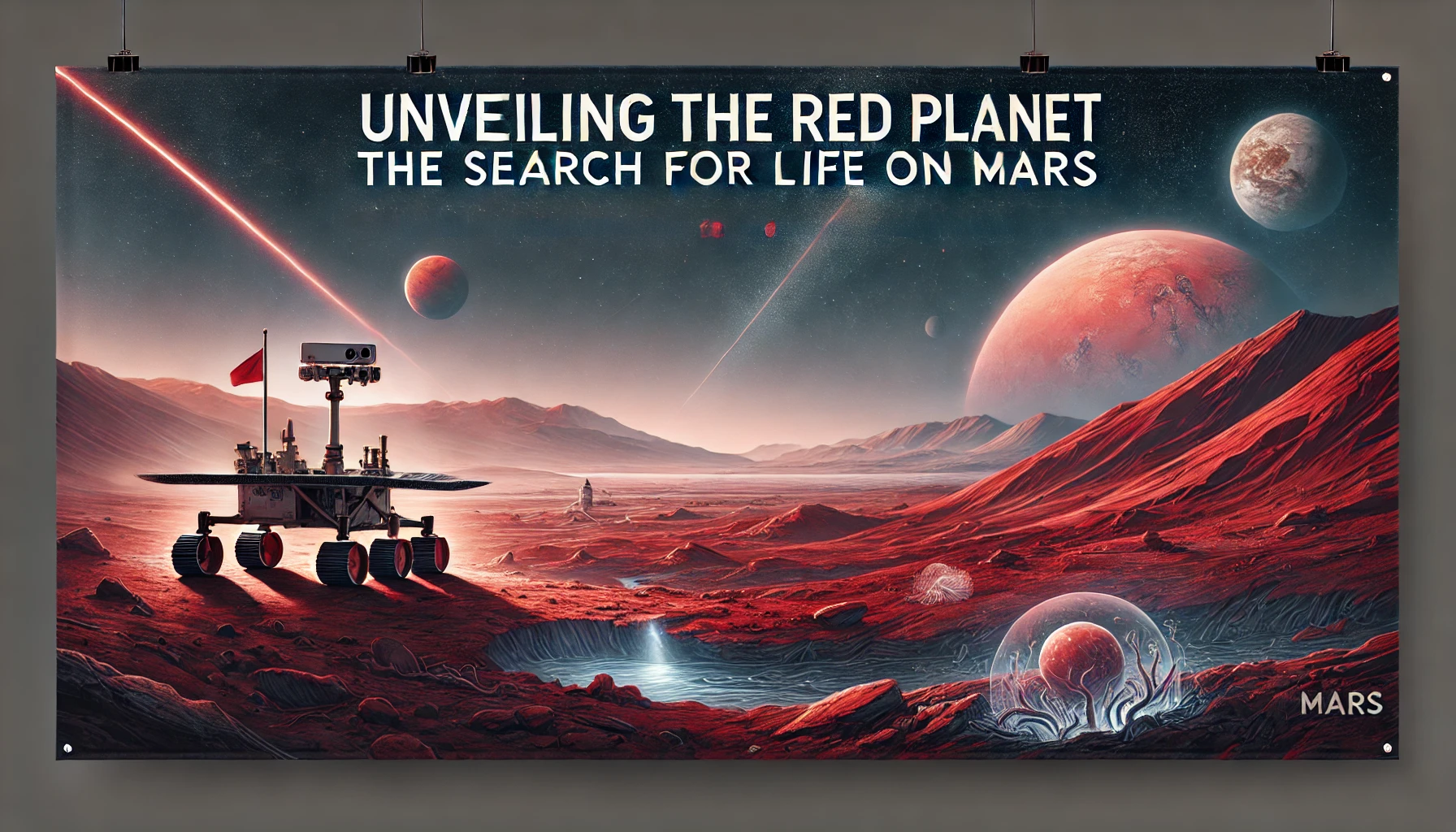A Detailed Look at the Evidence and Discoveries of Life on Mars: Unveiling the Red Planet
Mars has long fascinated scientists and the general public alike, especially with the possibility of discovering life on the Red Planet. The search for evidence of life on Mars has led to significant discoveries by NASA and other space agencies. From signs of life on Mars to speculative theories about alien life, the exploration of Mars continues to captivate our imaginations. This blog delves into the most compelling evidence and discoveries related to the search for life on Mars.
Direct Evidence: What We Know About Life on Mars
The search for life on Mars has been ongoing for decades, with scientists focused on uncovering signs of microbial life and other potential forms of life. Evidence of life on Mars has been a central topic of exploration, with various missions sent to investigate the planet’s surface and atmosphere.
Signs of Life on Mars
Several missions have found intriguing signs that hint at the potential for life. These signs include:
- Methane spikes: The presence of methane in the Martian atmosphere is considered a potential indicator of microbial life, as on Earth, methane is often produced by living organisms.
- Seasonal changes in gas: Scientists have observed seasonal fluctuations in gases like methane, which may suggest biological activity beneath the surface.
- Water presence: Liquid water is essential for life as we know it. Recent findings of liquid water under Mars’ surface have fueled speculation about the possibility of life.
Proof of Life on Mars
While definitive proof of life on Mars remains elusive, ongoing research continues to provide tantalizing clues. For example:
- Rock formations that resemble microbial fossils have been found, sparking debates about whether they are remnants of ancient life forms.
- The Viking landers conducted experiments in the 1970s that hinted at biological processes, though the results were inconclusive.
Discoveries by NASA and Other Space Agencies
NASA’s Mars missions have been at the forefront of the search for life on the planet. The Mars rover findings have played a crucial role in advancing our understanding of the planet’s potential to support life.
Mars Life Discovery
One of the most significant discoveries on Mars was made by the Curiosity rover, which detected complex organic molecules in the Martian soil. These molecules, which are the building blocks of life, suggest that Mars may have had the right conditions to support life in the past.
- Curiosity’s discoveries include:
- Organic compounds: The rover found organic molecules preserved in ancient Martian rocks, indicating that the building blocks of life were present on Mars.
- Seasonal methane variations: Curiosity also detected seasonal variations in methane levels, further fueling the possibility of biological activity.
Mars Rover Findings
The various Mars rovers have provided invaluable data about the planet’s geology, atmosphere, and potential habitability. Some of the key findings include:
- Water evidence: Rovers like Opportunity and Spirit found evidence of ancient water flows, such as mineral deposits and rock formations shaped by water.
- Soil composition: The analysis of Martian soil has revealed the presence of perchlorates, a type of chemical that can be used by certain types of bacteria to produce energy.
Mars Water Discovery
The discovery of liquid water on Mars has been one of the most exciting developments in the search for life. In 2018, scientists announced the detection of a subsurface lake near the planet’s south pole, raising hopes that microbial life might exist in these hidden waters.
- The presence of water on Mars suggests that the planet could harbor life, or at least may have in the past. Water is essential for life as we know it, and its discovery has opened new avenues for exploration.
Speculations and Theories: The Possibility of Alien Life
While definitive evidence of alien life on Mars has yet to be found, the possibility continues to inspire both scientific inquiry and popular imagination. Speculative theories about Martian life often focus on the potential for microbes to exist in extreme environments on the planet.
Alien Life on Mars
The idea of alien life on Mars has been a subject of speculation for centuries. While no conclusive evidence has been found, some scientists believe that life could exist in extreme environments on Mars, such as underground or in salty brine pools.
- Theories about Martian life include:
- Extremophiles: These are organisms that thrive in extreme conditions, such as high radiation or low temperatures. Some scientists speculate that similar organisms could exist on Mars.
- Panspermia: This theory suggests that life on Earth may have originated on Mars and was transferred here via meteorites.
Evidence of Martian Life
While there is no direct evidence of Martian life, ongoing research continues to explore the possibilities. The search for life on Mars is closely tied to our understanding of life’s origins and the conditions necessary for life to thrive.
The Future of Mars Exploration
The search for evidence of life on Mars is far from over. Future missions, including those planned by NASA and other space agencies, aim to bring back samples from Mars to Earth for detailed analysis. These missions may finally answer the question of whether life ever existed on Mars.
As we continue to explore Mars, the discoveries made so far provide a strong foundation for future research. The potential for life on Mars not only deepens our understanding of the planet but also challenges our understanding of life in the universe.
For more insights into space exploration and scientific discoveries, visit Regent Studies.
For further reading on the search for life on Mars, you can explore NASA’s dedicated Mars Exploration Program website.




